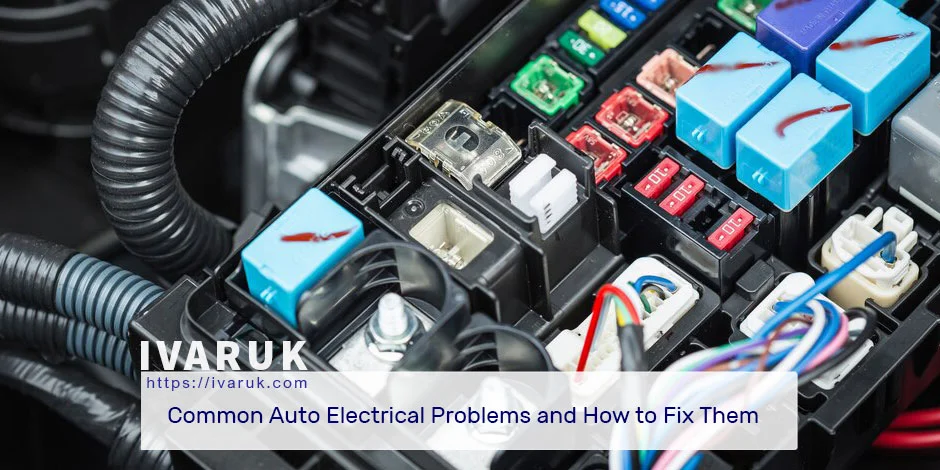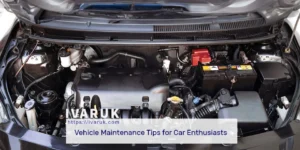Table of Contents
ToggleCommon Auto Electrical Problems
Your car’s electrical system is responsible for powering everything from the engine to the headlights to the radio. When something goes wrong with the electrical system, it can cause a variety of problems, from minor inconveniences to major engine trouble.
In this blog post, we will discuss some of the most common auto electrical problems and how to fix them. We will also provide tips on how to prevent electrical problems from happening in the first place.
Common Auto Electrical Problems
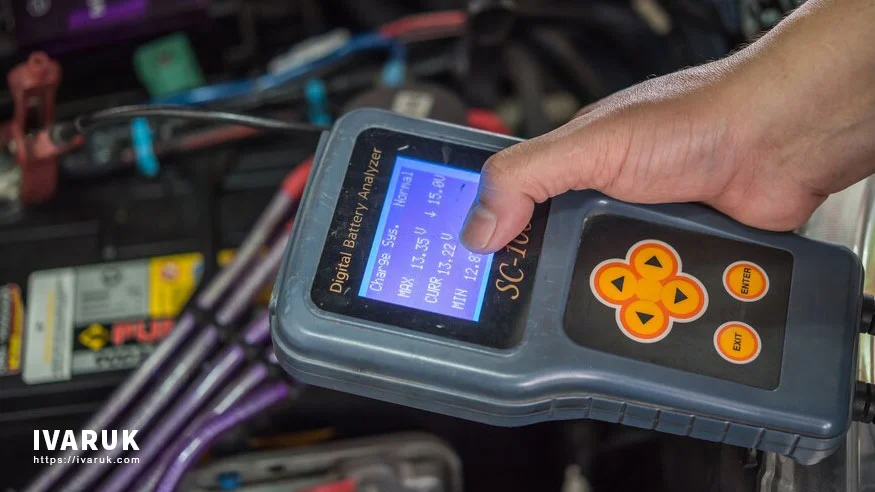
Here are some of the most common auto electrical problems:
- Dead battery: A dead battery is the most common auto electrical problem. It can be caused by a number of factors, including leaving the headlights on, a faulty alternator, or a short circuit.
- Dim headlights: Dim headlights can be caused by a number of factors, including a dirty headlight lens, a weak battery, or a faulty alternator.
- Alternator problems: The alternator is responsible for charging the battery while the engine is running. If the alternator is not working properly, it can cause a number of problems, including a dead battery, dim headlights, and engine trouble.
- Starter problems: The starter motor is responsible for starting the engine. If the starter motor is not working properly, it can cause the engine to not start or to start intermittently.
- Wiring problems: Wiring problems can cause a variety of electrical problems, including dim headlights, flickering lights, and engine trouble.
- Spark plug problems: Spark plugs are responsible for igniting the fuel in the engine. If the spark plugs are worn out or dirty, it can cause engine misfires and poor performance.
- Distributor problems: The distributor is responsible for distributing the spark to the spark plugs. If the distributor is not working properly, it can cause engine misfires and poor performance.
- Ignition coil problems: The ignition coil is responsible for creating the spark that ignites the fuel in the engine. If the ignition coil is not working properly, it can cause engine misfires and poor performance.
- Fuel pump problems: The fuel pump is responsible for pumping fuel from the tank to the engine. If the fuel pump is not working properly, it can cause the engine to stall or run poorly.
- Oxygen sensor problems: The oxygen sensors monitor the amount of oxygen in the exhaust gas. If the oxygen sensors are not working properly, it can cause the engine to run rich or lean, which can lead to fuel economy problems and emissions problems.
- Mass airflow sensor problems: The mass airflow sensor measures the amount of air entering the engine. If the mass airflow sensor is not working properly, it can cause the engine to run rich or lean, which can lead to fuel economy problems and emissions problems.
- Catalytic converter problems: The catalytic converter is responsible for reducing emissions from the exhaust gas. If the catalytic converter is not working properly, it can cause the engine to run poorly and emissions levels to increase.
How to Fix Common Auto Electrical Problems
If you are experiencing any of the electrical problems listed above, it is important to have your car diagnosed by a qualified mechanic. They will be able to identify the specific problem and recommend the best course of action.
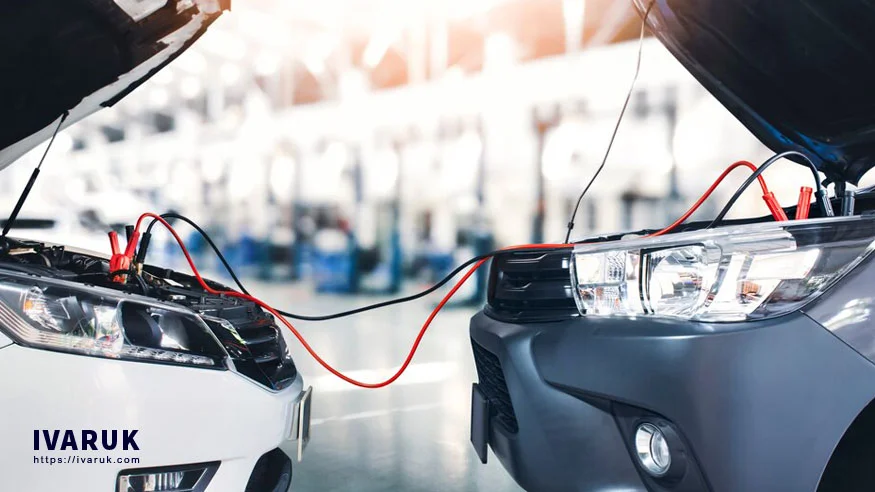
Here are some general tips for fixing common auto electrical problems:
- Dead battery: If your battery is dead, you can try to jump-start it or replace it with a new battery.
- Dim headlights: If your headlights are dim, you can try cleaning the headlight lenses or replacing the headlight bulbs.
- Alternator problems: If your alternator is not working properly, it will need to be replaced.
- Starter problems: If your starter motor is not working properly, it will need to be replaced.
- Wiring problems: Wiring problems can be difficult to diagnose and fix. It is best to have a qualified mechanic diagnose and fix wiring problems.
- Spark plug problems: Spark plugs should be replaced every 30,000 to 60,000 miles. If you are experiencing engine misfires or poor performance, you may need to replace your spark plugs sooner.
- Distributor problems: Distributors should be tuned up every 30,000 to 60,000 miles. If you are experiencing engine misfires or poor performance, you may need to have your distributor tuned up or replaced.
- Ignition coil problems: Ignition coils should be replaced every 90,000 to 120,000 miles. If you are experiencing engine misfires or poor performance, you may need to replace your ignition coils sooner.
- Fuel pump problems: Fuel pumps should be replaced every 60,000 to 100,000 miles. If your car is stalling or running poorly, you may need to replace your fuel pump.
- Oxygen sensor problems: Oxygen sensors should be replaced every 80,000 to 100,000 miles. If your car is experiencing fuel economy problems or emissions problems, you may need to have your oxygen sensors replaced.
- Mass airflow sensor problems: Mass airflow sensors should be replaced every 60,000 to 80,000 miles. If your car is experiencing fuel economy problems or emissions problems, you may need to have your mass airflow sensor replaced.
- Catalytic converter problems: Catalytic converters should be replaced every 100,000 to 120,000 miles. If your car is running poorly or emitting excessive emissions, you may need to have your catalytic converter replaced.
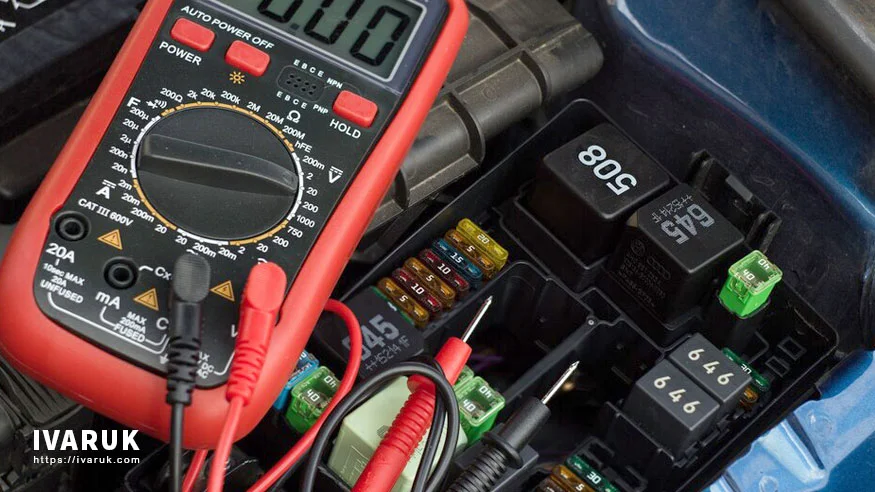
Preventing Auto Electrical Problems
There are a few things you can do to prevent auto electrical problems from happening in the first place:
- Keep your battery clean and charged. A dirty or weak battery can lead to a number of electrical problems.
- Have your alternator and starter checked regularly. These components are essential for keeping your car running, and they can wear out over time.
- Inspect your wiring regularly for any signs of damage. Wiring problems can be difficult to diagnose and fix, so it’s best to catch them early.
- Avoid overloading your electrical system. This can put a strain on your battery and alternator, and lead to problems down the road.
- Have your car tuned up regularly. A tune-up can help to identify and fix potential electrical problems before they cause major problems.
Conclusion
Auto electrical problems can be a nuisance, but they can also be serious. If you are experiencing any of the electrical problems listed above, it is important to have your car diagnosed by a qualified mechanic as soon as possible. By following the tips above, you can help to prevent auto electrical problems from happening in the first place.
Additional tips for preventing auto electrical problems:
- Use high-quality electrical components. Cheap electrical components are more likely to fail prematurely.
- Avoid using aftermarket electrical accessories unless they are specifically designed for your car. Using aftermarket accessories that are not properly designed can overload your electrical system and lead to problems.
- Park your car in a safe place during lightning storms. Lightning can damage electrical systems, so it’s best to avoid parking your car under trees or other tall objects during a lightning storm.
By following these tips, you can help keep your car’s electrical system running smoothly for many years to come.
Troubleshooting Auto Electrical Problems: Your Top 10 FAQs
Why Won’t My Car Start?
If you’ve ever found yourself in a situation where your car won’t start, you’re not alone. It’s a common issue with various potential causes. A dead battery, faulty starter motor, or ignition problems could be to blame. To get your car up and running again, it’s crucial to diagnose the root cause properly.
Common Causes of Starting Issues:
- Dead Battery: A weak or dead battery is one of the most common reasons for a no-start condition. Regular battery maintenance is essential.
- Faulty Starter Motor: A malfunctioning starter motor can prevent the engine from cranking.
- Ignition Problems: Issues with the ignition switch or key may lead to starting troubles.
What Are the Signs of a Failing Alternator?
Your car’s alternator plays a crucial role in keeping the battery charged and the electrical system functioning. Recognizing the signs of a failing alternator is essential to prevent unexpected breakdowns and costly repairs.
Signs of a Failing Alternator:
- Dimming Lights: The headlights and interior lights may become noticeably dimmer.
- Battery Warning Light: If the battery warning light on the dashboard illuminates, it’s a clear indicator of alternator trouble.
- Strange Noises: Unusual noises from the alternator, such as grinding or whining, can signal issues.
How Do I Identify a Faulty Starter Motor?
When your car’s starter motor is on the fritz, it can leave you stranded. Knowing how to identify the signs of a failing starter motor can help you address the problem before it gets worse.
Identifying a Faulty Starter Motor:
- Clicking Sound: A repeated clicking sound when turning the key is a common sign of a bad starter.
- No Cranking: If the engine doesn’t crank at all, it’s likely the starter motor’s fault.
- Electrical Issues: Starter problems can also lead to electrical malfunctions in the vehicle.
Why Do My Lights Flicker?
Flickering headlights and interior lights can be a nuisance and a safety hazard. Several issues can cause this problem, so it’s important to identify the root cause.
Common Reasons for Flickering Lights:
- Loose Wiring: Loose connections or damaged wiring can cause intermittent flickering.
- Alternator Problems: A failing alternator can result in voltage fluctuations, affecting the lights.
- Dimmer Switch Issues: Malfunctions in the dimmer switch may cause flickering.
What Should I Do About a Dead Battery?
A dead battery can put a damper on your day, but there are steps you can take to address the issue and prevent future occurrences.
Dealing with a Dead Battery:
- Jump-Start: Use jumper cables and another vehicle to jump-start your car.
- Battery Replacement: If your battery is old or beyond recovery, consider replacing it.
- Regular Maintenance: Keep your battery in good condition with regular checks and cleaning.
How Can I Diagnose a Blown Fuse?
Blown fuses can cause various electrical issues in your car, from non-functioning power windows to a malfunctioning radio. Learning how to diagnose and replace a blown fuse is a handy skill for any car owner.
Diagnosing a Blown Fuse:
- Fuse Box Location: Find the fuse box in your car, typically under the dashboard or in the engine compartment.
- Visual Inspection: Check the fuses for signs of a broken filament or discolouration.
- Use a Test Light: A test light or multimeter can help confirm if a fuse is blown.
How Do I Fix a Malfunctioning Power Window?
Faulty power windows can be a frustrating issue. Understanding the common causes and how to address them can save you a trip to the repair shop.
Troubleshooting Power Window Problems:
- Check the Switch: Ensure the window switch is functioning correctly.
- Inspect Wiring and Fuses: Examine the wiring and fuses related to the power windows.
- Window Regulator Replacement: If the window motor or regulator is faulty, it may need replacement.
Why Does My Car’s A/C System Blow Hot Air?
A malfunctioning air conditioning system can make your summer drives unbearable. Learn why your A/C system might blow hot air and how to resolve the issue.
Causes of A/C Blowing Hot Air:
- Refrigerant Leak: Low refrigerant levels can result in warm air blowing from the vents.
- Faulty Compressor: A malfunctioning A/C compressor won’t cool the air properly.
- Blend Door Issues: Problems with the blend door can lead to improper temperature control.
How Can I Prevent Electrical Problems in My Car?
Prevention is often the best approach to auto electrical problems. There are several steps you can take to reduce the risk of electrical issues in your vehicle.
Tips for Preventing Electrical Problems:
- Regular Maintenance: Keep up with routine maintenance, including battery checks and electrical system inspections.
- Clean Battery Terminals: Clean and secure battery terminals to maintain a good connection.
- Protect Wiring: Insulate and protect exposed wiring to prevent damage.
What Should I Do If My Check Engine Light Comes On?
When the dreaded check engine light illuminates your dashboard, it’s essential to take action promptly. Ignoring it could lead to more significant problems.
Dealing with the Check Engine Light:
- Check for Codes: Use an OBD-II scanner to retrieve trouble codes that provide clues about the issue.
- Address the Problem: Based on the codes, diagnose and address the underlying problem.
- Seek Professional Help: If you’re unsure or the issue is complex, consult a mechanic for assistance.
Now, with answers to these common questions, you’ll be better equipped to handle auto electrical problems and keep your vehicle running smoothly. Remember that proper maintenance and timely diagnosis are key to preventing and addressing these issues effectively.
